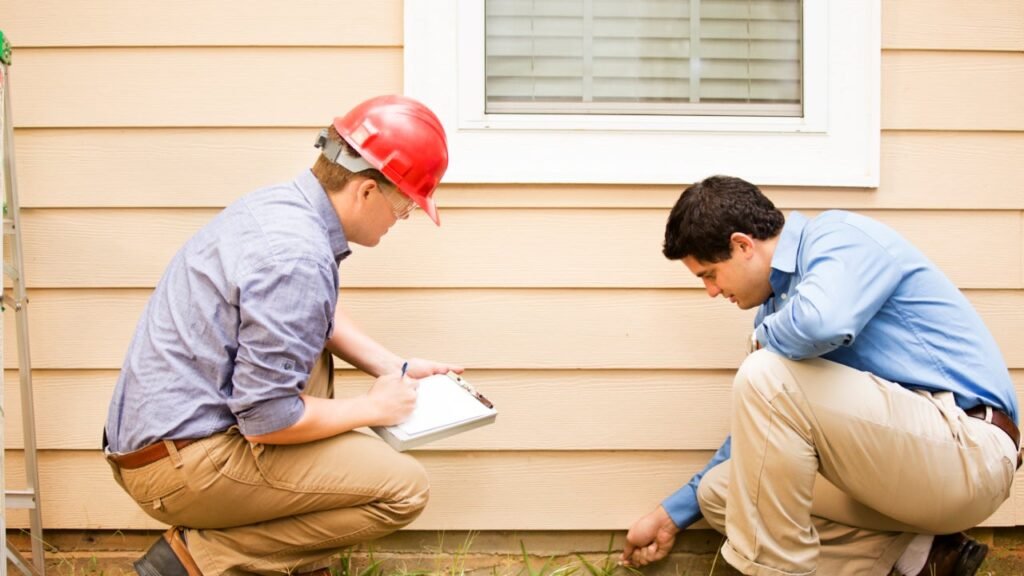If you are considering a career as a home inspector, it is important to take several factors into consideration, such as hours of work, pay, and flexibility. If you’re looking for a flexible career, a home inspection job might be right for you. If you’re certified, your job will require little to no training, and you can work anywhere you want.
Qualifications To Become A Home Inspector
Qualifications to become a certified home inspector can vary from state to state. In some states, a home inspector must have an associate’s degree or certification in building inspection technology, while in others, the minimum education requirement is a high school diploma. In addition to these formal qualifications, a home inspector must also complete a training program.
New York State requires that a home inspector have a license. To get a license, you need to take a test to prove your knowledge. The National Home Inspection Exam (NHI) is a four-hour multiple-choice test. It costs approximately $200 to $300. The examination is offered through Pearson VUE or PSI/AMP, two national test providers.
To become a certified home inspector, you need to have a passion for real estate, a willingness to help clients, and a thorough knowledge of good construction practices. You must also have good communication skills, and an eye for detail. You must also have knowledge of construction and the tools used in the industry. In addition, you should have a background in business management and have some experience as a home inspector.
Certification
Home inspectors are required to undergo training in order to be licensed. A training school must offer at least 80 hours of classroom instruction. Copies of correspondence courses or online courses are not acceptable. The course must provide the necessary knowledge and skills to pass a competency examination. It should also teach how to conduct a thorough home inspection and write reports that are easily understandable. In addition, a home inspector must provide the name of his or her actual insurance carrier.
There are two major organizations in Canada that offer certification to home inspectors. The first organization is the National Home Inspector Certification Council, a not-for-profit organization. The second organization, the Professional Home and Property Inspectors of Canada, offers certification in property inspections. The certification program is open to all home inspectors.
There are many courses available. You can find a suitable one for you at a price that fits your budget. You can also choose a self-paced course to learn at your own pace. These courses are offered online and provide lifetime access to the training materials. This makes it easier to review your knowledge before taking relevant examinations. Additionally, you can refer back to the training materials throughout your career, which is extremely beneficial.
Licensing
The Board of Registration of Certified Home Inspectors (BRCHI) is a governmental agency that evaluates and grants licenses to qualified applicants. Its purpose is to protect the public from harm caused by unqualified individuals and to ensure that home inspectors have received proper training and meet the minimum inspection requirements. To become licensed, applicants must pass a board-approved examination, fulfill continuing education requirements, and adhere to the state’s code of ethics.
Home inspectors in New York must obtain a license from the state. However, engineers, architects, and code enforcement officials do not need a license. To open a separate home inspection business, a home inspector must complete the education requirements, pass an examination, and pay annual fees to the Department of State. For renewal, home inspectors must pay fees by check, money order, MasterCard, or Visa. Returned checks will incur a fee of $20. It is necessary to renew a license at least 90 days before it expires.
The National Home Inspection Exam (NHIE) is required to become a home inspector in most states. It is a four-hour exam with 200 multiple-choice questions. Scores range from 200 to 800. The fee to take the exam is around $200 to $300. PSI/AMP and Pearson VUE are two national exam providers that offer NHIE tests.
Insurance
A certified home inspector needs to have insurance to protect himself and his business. While a basic liability insurance policy covers property damage, professional liability insurance protects home inspectors against claims of negligence. This type of insurance covers errors and omissions, and provides compensation in case of a third-party lawsuit. Home inspectors also need workers’ compensation insurance, since they often employ employees.
While home inspector insurance may be costly, it is an important part of protecting your business. It will protect you from unforeseen risks and cover your expenses, including the replacement cost of equipment. You must evaluate your business risks to make sure that you have the right coverage. You should also work with a professional insurance agent to select a policy that includes all the coverage you need.
You should also get a quote from multiple insurance companies before choosing a policy. Different insurance companies offer different policies, and you can easily compare quotes online.

